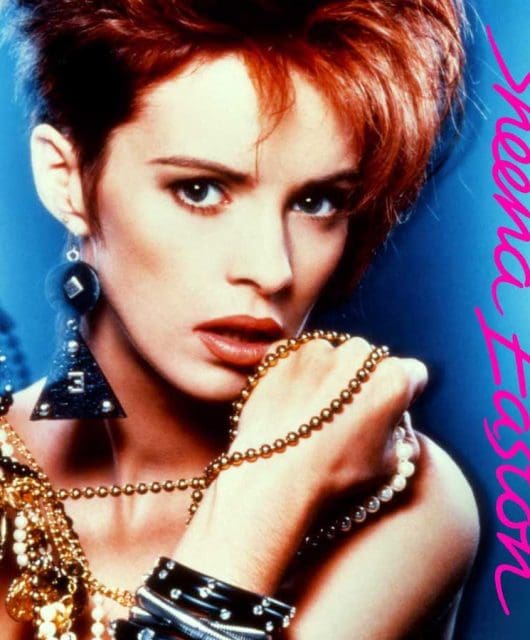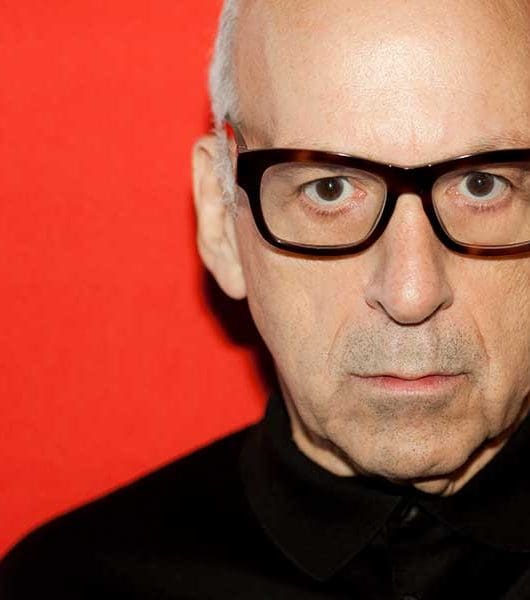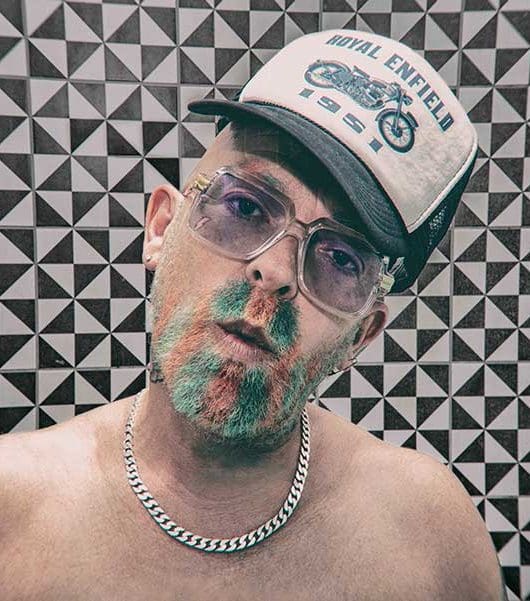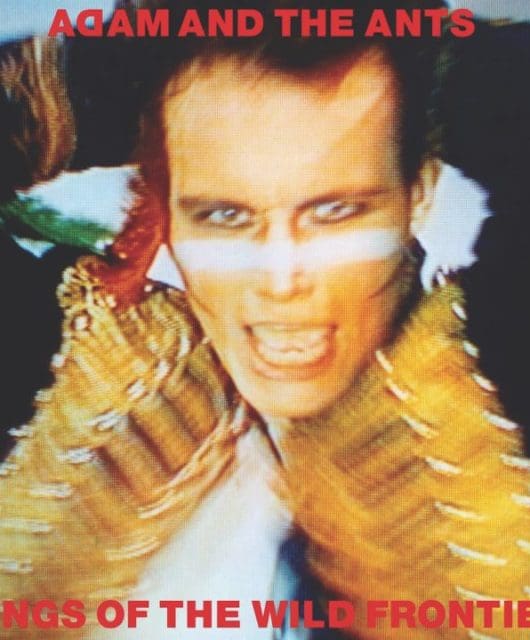Gaz Coombes interview: “The 90s were a free-for-all”
By Classic Pop | February 28, 2023
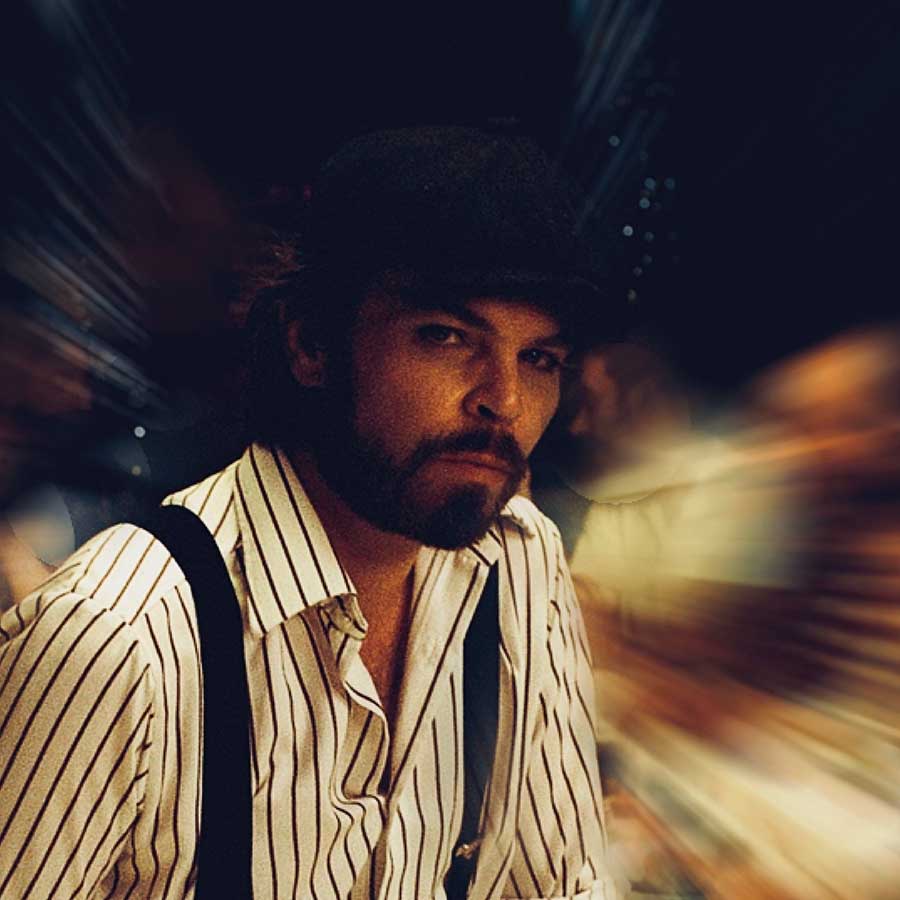
Gaz Coombes has matured from the scamp with the sideburns in Supergrass to thoughtful solo artist. For his new solo album, he tells us why he’s looking forwards, not backwards. By Will Simpson
We’re nearing the end of the year and Gaz Coombes is sat in his home studio clad in a sheepskin coat and beany hat.
“There’s no central heating and the electric radiator I use broke the other day,” he shrugs. So he’s had to turn on his valve desk. “That gets really warm and eventually it does get quite toasty in here!”
You might think this is a down-on-his-luck ex-pop star struggling with the cost of living crisis, but Coombes is doing very nicely thank you.
Over the last decade he’s managed to develop a solo identity quite separate from the fondly-regarded Britpop band he fronted for nearly two decades.
He’s pulled off one of the most difficult tricks in pop – maturing whilst not losing his fanbase and still being recognisably himself.
He’s still the scamp with the sideburns. Just a bit more thoughtful and considered. Like we all are (or should be) once we hit our 40s.
Compared to others, his lockdown was relatively stress-free. He even managed to use the time to build this studio.
“We did alright,” he smiles. “I was very lucky to have a neighbour who’s a builder. Took 10 weeks and then off I went. So that was a cool use of time. I was very lucky to be able to do that.”
It was in there that the songs that comprise his fourth solo album, Turn The Car Around, began to take shape.
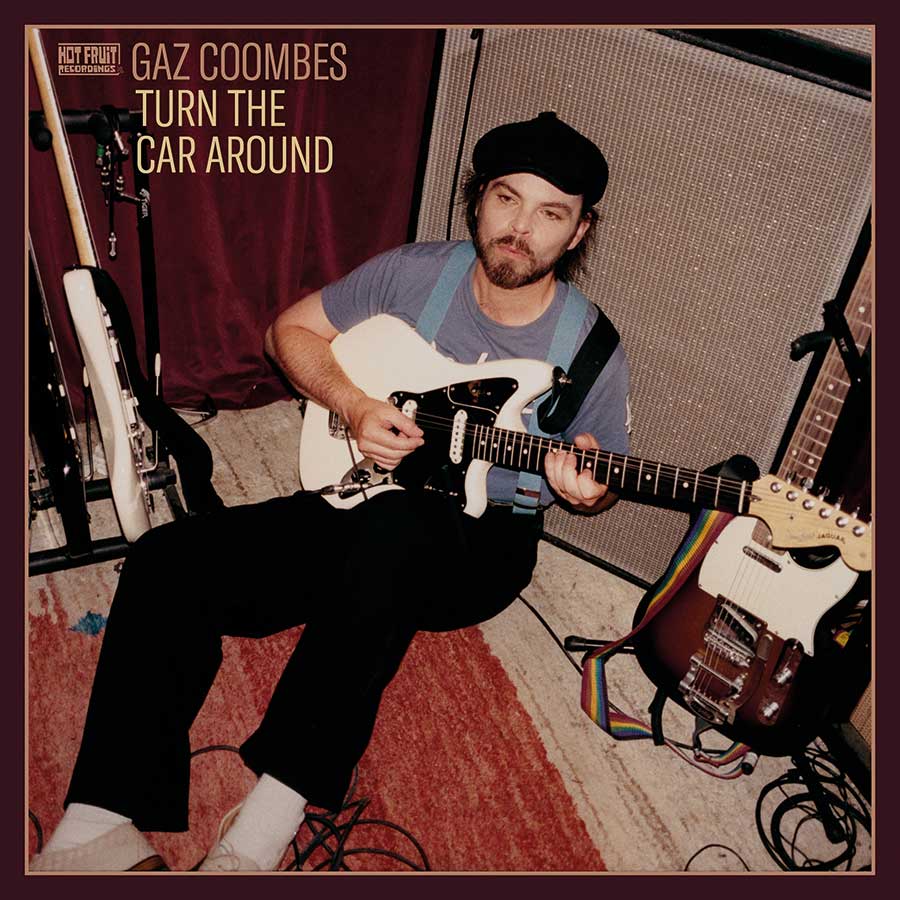 “It gave the writing a lot more immediate purpose, being a bespoke place purely to do my work, rather than commandeering a corner of the house to chuck all my gear in and pushing the family out of that bit.
“It gave the writing a lot more immediate purpose, being a bespoke place purely to do my work, rather than commandeering a corner of the house to chuck all my gear in and pushing the family out of that bit.
“I mean, you can record anywhere but it is great to get all of my gear into one place. I come in and feel like, ‘Yes… let’s get on with it.”
Coombes worked on the songs from mid-2020 through to 2021 and the album would probably have been out earlier but for a bit of unfinished business from before the pandemic. Supergrass were just starting out on their reunion tour when it (like everything) came grinding to a halt in March 2020.
The reunion had come out of the blue.
“Me and Danny [Goffey, drummer] remained in touch all the way through, and the management team that he’s working with suggested that they could help put it together. There were some anniversaries coming up. It was 10 years since the split.
“All these little dates fitted together and I personally felt maybe if we don’t do it now, either it ain’t going to happen or it won’t happen for another 10 years. So yeah, it was a case of, ‘Sod it, let’s get in a room’ to see how the songs sound. And luckily they sounded great.
“I’m really glad we did it, but I’m gutted that it took three years. It was a pity because it brought back some of those strains and stresses of being in the band. But that’s just the nature of the pandemic being what it was and the reunion dragging on. It was worth it, though.”
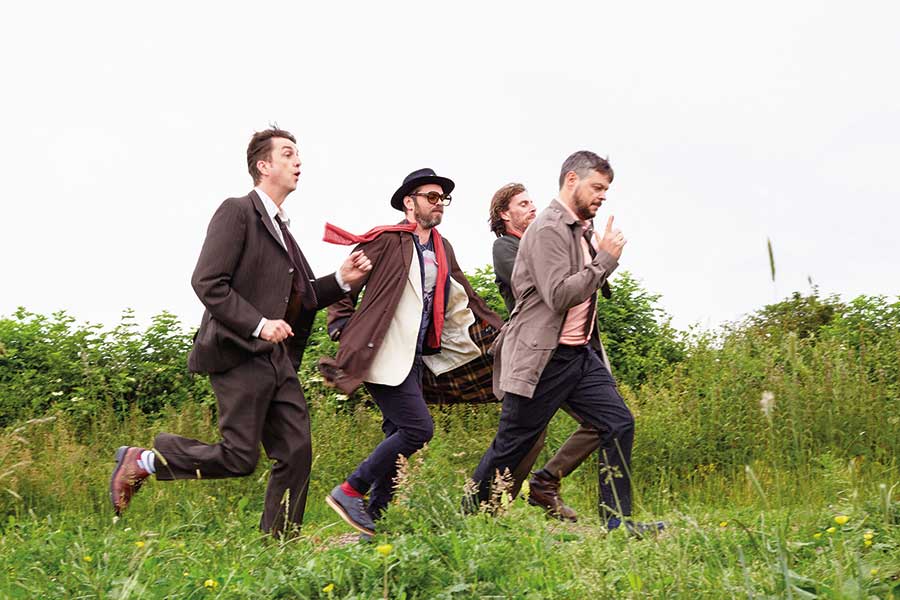
The only reservation Coombes had was that getting the old gang back together seemed a retrograde move for an artist whose albums have all been critically acclaimed (2015’s Matador bagged a Mercury nomination).
“Yes, I was anxious about that,” he admits. “Having got into a flow and the last two albums having done so well, it seemed a bit odd, like a backward step.
“But then I was confident that I could operate both things together and it seems that I did, because I was obviously writing this record mainly during the reunion so… I feel like I made best use of both things.”
On previous albums Coombes had played most of the instruments himself but on Turn The Car Around there was more input from two band members – bassist Nick Fowler and keyboard player Garo Nahoulakian.
“They’d come over to do sessions and work on the stuff that I’d got together already and I’d get them to put some overdubs on. They’re both such musical people and it’s really brilliant to have them in to vibe off really. But I remain the core – I’m still on the drums during most of this record.”
The trio used an interesting, almost Eno-like method, of projecting films onto themselves while they played in the studio.
“We were having a session here, just getting in the flow and I have a projector in here anyway so we can watch movies as a family.
“So I just switched it on while we were working and it just does something within the room – the fact that there’s this different medium going on, it stops people looking at their fretboards and releases the brain to look around.
“The visuals on the wall unconsciously take you to other places and it stops the focus being on what you’re playing. It loosens things up.”
- Read more: Making The La’s
The resulting album is a wistful, graceful-sounding piece of work with several of the songs alluding to the depth, beauty and pain of love.
“I think these lyrics are just a way of me processing stuff,” he suggests. Songs like Dance On and the title track took a while because they were about emotional things, I suppose.
“There’s a couple of lines about my mother dying which was 15 years ago now. It still kinda creeps out into songs because it’s such a big hole and it’s still there.”
It’s not all personal. Sonny The Strong is a story song of a boxer who gets sent to war. Coombes was inspired by Randolph Turpin, the 1950s middleweight from Leamington Spa who died in suspicious circumstances after he retired from the ring.
“Me and my wife were watching loads of documentaries and got into this idea of being whipped out of your career at the height of your fame and sent to war and how incredible that must have been.
“It was an amalgamation of him and a couple of other boxers. Randolph didn’t go to war but I needed a verse two! It was fun to write that one.”
Then there’s Long Live The Strange, a rallying cry along similar lines to Pulp’s Misfits.
“They’re the people who don’t think they fit in, who are only them and they’re unique. I’ve used ‘strange’ in lyrics for years and its always in the most endearing sense.
“We were the strange ones once, living in Oxford. We always thought we were a bit odd and quirky and liked to hang out with other people who were also a bit odd and quirky.”
Unlike their Britpop peers, Supergrass – or at least Coombes and bassist Mick Quinn – declined to move down to London: “It always felt good being in a band here and not being in the eye of the storm,” he explains.
It meant they were never over-exposed, but also never reached Blur or Oasis levels of fame. Perhaps they never quite fulfilled their potential. Coombes ponders this.
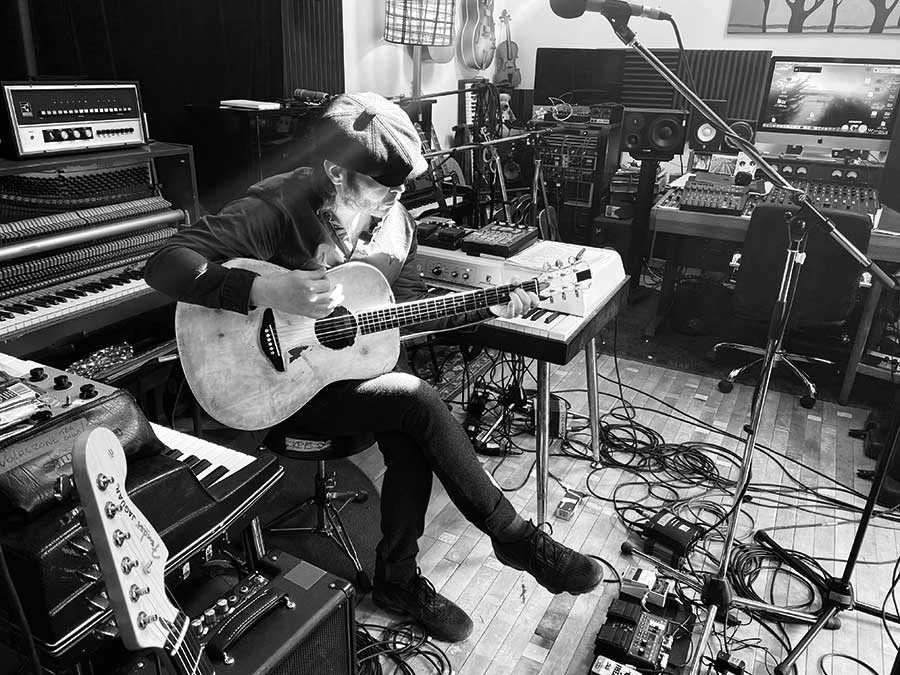 “I don’t know what the ingredients would have been to be bigger, or whether or not it was within us. I think usually it’s not about the music. It’s about other things – having an arrogance to force people, or force the industry, to put you in arenas so you force the issue and start to tell people you are worthy of that scale.
“I don’t know what the ingredients would have been to be bigger, or whether or not it was within us. I think usually it’s not about the music. It’s about other things – having an arrogance to force people, or force the industry, to put you in arenas so you force the issue and start to tell people you are worthy of that scale.
“It’s kind of a game that’s quite tough to play. You’ve got to be different kind of people or at least have different kind of managers.”
“But we were a gang. We really loved making music together – it was a very family vibe and we lived quite rurally. Maybe the ingredients weren’t set up for us to be like Oasis, even though our music was clearly so much better!” he says with a chuckle.
“No I do love Oasis, especially that first record. But we liked to underplay. Maybe we underplayed ourselves out of fame and fortune. But we were happy.”
Whatever, they left behind some cracking singles. Not least Alright, which will be forever etched in our collective memory as one of the anthems of the 90s, that sunlit era between the end of the Cold War and 9/11. “It was a free-for-all. It was chaotic. It was fun,” is Coombes’ recollection.
“It was a bit like the new 60s – the way that fashion and music worked together, it was like a reinvention of that era. Early on with our band there were a lot of photos where we’ve all got flares, purple velvet suits, long hair and sideburns. It could have been 1967.”
Supergrass kept at it longer than their contemporaries. They only split up in 2010 when sessions for album seven ran aground. Did they go on too long?
“That’s a hard one. What I do know is that we made three really incredible records – the first three. I’m glad we went on to have a long career. That’s something cool we wanted to emulate from our favourite bands from the 60s and 70s. I liked that lifespan of those bands.”
 He seems ambivalent about the possibility of future Supergrass activity. “None of us are saying never. Would we make new music? I don’t know. We split up because we were in the studio and couldn’t operate together so I don’t really know what would be different now.
He seems ambivalent about the possibility of future Supergrass activity. “None of us are saying never. Would we make new music? I don’t know. We split up because we were in the studio and couldn’t operate together so I don’t really know what would be different now.
“I know it’s a beautiful thing and people love the band but no… I don’t know why you’d force the issue when it’s not happening just to keep it going. That wouldn’t fulfil me at all. But the door is never closed to doing some more shows.”
In the meantime, the valve desk is finally making things toasty and you sense that Gaz Coombes is only just warming up as a solo artist.
“Supergrass was something that dominated my life from the age of 15, all the way to 2010,” he reflects. “I learned so much. I wouldn’t be doing what I’m doing now without any of that for sure. But it’s the next stage now and I’m not afraid of any of these new stages to come.”
- Want more from Classic Pop magazine? Get a free digital issue when you sign up to our newsletter!


